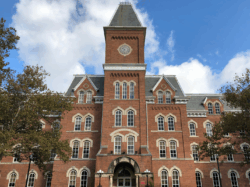
Ohio State University (OSU) has announced an all-encompassing artificial intelligence (AI) program for its undergraduate class of 2029. Launching this fall for first-year students, Ohio State’s AI Fluency initiative will embed AI education into the core of every undergraduate curriculum, equipping students with the ability to not only use AI tools, but to understand, question […]
Read More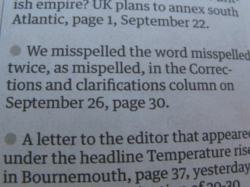
College students are getting creative—not with their ideas, but with how they hide the fact that they’re using artificial intelligence (AI) to do their work. In an era where AI tools like ChatGPT have become second nature in higher education, students are now taking steps to de-optimize their essays. They’re deliberately adding typos, oversimplifying language, […]
Read More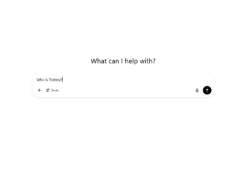
I thought that we had hit rock bottom with English pedagogy when the National Council of Teachers of English proclaimed in 2022 that “the time has come to decenter book reading and essay writing as the pinnacles of English language arts education.” Nope. There’s a new plague on the rise in English classrooms, and it […]
Read More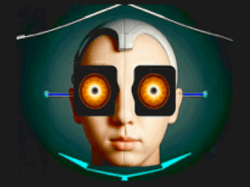
While listening to an online debate about the future of artificial intelligence (AI), I considered writing this essay and a parallel one that I had asked AI to write. The debate delved into the differences of human versus machine language “intelligence,” computational wizardry versus human emotion, and regulation of the AI industry, whether driven by profit and market […]
Read More
Author’s Note: This open letter to my students and the higher education community is intended for broad readership and circulation. The views expressed are solely my own and do not reflect those of Arizona State University or any other academic institution. Informed by my experience teaching at five universities, including the University of Maryland and […]
Read More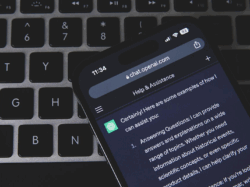
For those of you who have been following my publication trail with Minding the Campus, you are likely familiar with my frequent discussions on scientific ethics. I have commented on research misconduct, peer review fraud, and the reproducibility crisis, examining the effect of careless behavior and intentional fabrication in the scientific world and their profound […]
Read More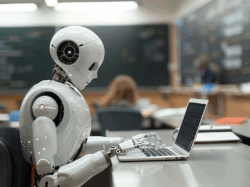
With the largely unregulated release of both domestic and foreign-based artificial intelligence (AI) technologies in the United States, corporations, businesses, and governmental institutions are seeking sustainable policy solutions to address disruptions to their normal organizational operations. American higher education institutions, as corporations tasked with maintaining institutional solvency and delivering rigorous educational programs, are also facing […]
Read More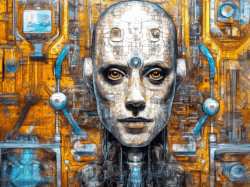
Higher education’s problem is more than a loss of confidence. Anti-Semitism on many college campuses is a visible symptom of far deeper problems. Anti-Semitism has been tied to the networked problems of discriminatory “diversity, equity, and inclusion” (DEI), wokeness, and critical consciousness. But this is more than anti-Semitism as the canary in the coalmine phenomenon. […]
Read More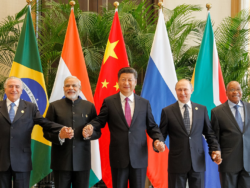
The world has entered a new era of Great Power competition, where civilizational and regional blocks are coalescing to create large spaces of economic, trade, and military influence. Leaders and experts worldwide have termed this the new era of multipolarity. The political, economic, and technological systems of the West have been hybridized and fused by […]
Read More
Moments of faith are not always somber and public. Often, they are funny and reveal God’s loving smirk. Once, when studying koine Greek for my doctorate in theology, I came across a bad computer translation of the New Testament that rendered the Greek word for the Gospel, “evangelion,” (εὐαγγέλιον) as “valid data stream.” During the […]
Read More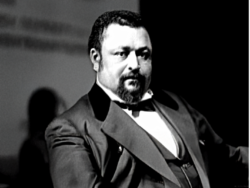
Artificial intelligence’s (AI) presence in higher education should be no surprise. Nor should it be surprising that its presence is expanding with both known and unknown consequences. Some people express concern about degrading students’ skillsets as a result of reliance on the organization and presentation of data trained in AI models. Faculty also express concern […]
Read More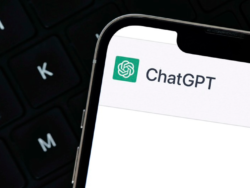
When ChatGPT was first released during my freshman year of college at Emory Univeristy, I thought my peers would avoid it for fear of being accused of plagiarism, especially given my school’s strict policy against it. I was wrong. Faced with the challenge of balancing stressful courses, demanding extracurriculars, and, for some, part-time jobs, “Just […]
Read More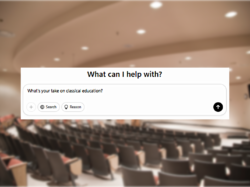
In graduate school, up-and-coming academics can dream about conducting interviews and focus groups in a foreign language in some hot and far-away locale. It does not always work out this way. You go where the information can be found. In confronting the elemental challenge of integrating classical education with artificial intelligence (AI), I decided to […]
Read More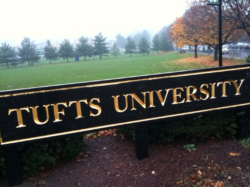
Tufts University in the Boston, Massachusetts metro area ranks 37th on the U.S. News and World Report and boasts an endowment exceeding $2 billion. Between 2019-2023, the American public funded Tufts research to the tune of $230 million per year, primarily through the U.S. Department of Health and Human Services (HHS), the U.S. Agency for […]
Read More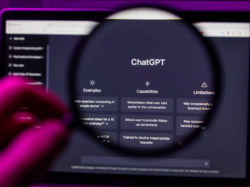
A friend of mine is a professor on the front lines of the artificial intelligence (AI) cheating revolution, both in his classroom and as part of the college committee that judges academic misconduct. He’s discovered that a collective approach to detecting AI cheating may be more effective than an individual one. But adopting a collective […]
Read More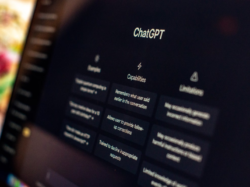
Generative artificial intelligence (AI) tools like Grok, ChatGPT, Claude, et cetera will radically change student assignments and evaluation in college classes. I have already explained how AI means that students can no longer be forced to do the reading. How will college professors change in response? Consider some likely approaches. They can ignore AI because […]
Read More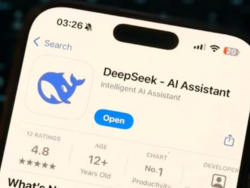
The newly released Deep-Seek artificial intelligence (AI) program, which is manufactured, owned, and operated within the sovereign bounds of the People’s Republic of China, has disrupted technology markets across the globe and raised new questions in the foreign policy fields of Great Power Competition. An often overlooked aspect of this newly emergent technology, however, is […]
Read More
The surprise on the faces of the doctoral students was as palpable as was the disbelief upon hearing the methodological equivalent of heresy spoken in a classroom. When giving a talk to grad students a year ago at the University of California, Riverside about careers beyond the university, I challenged an orthodoxy that is daily […]
Read More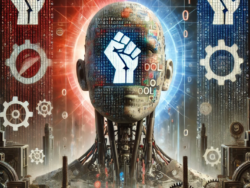
Usage of artificial intelligence (AI) models is rapidly spreading in education. Students use them to help with their coursework, and teachers and faculty use them to help with lesson plans and research. To the extent that these models can act as a tutor for students or an assistant for teachers and faculty, they can be […]
Read More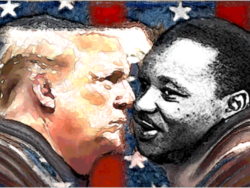
Author’s Note: In several of my recent articles, I’ve incorporated direct interactions with artificial intelligence (AI) chatbots. Looked at several years from now, these may seem superfluous. However, we are in the midst of a technological tipping point. We see this in faculty guides from the Chronicle of Higher Education and the University of Texas […]
Read More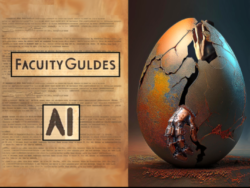
The love-hate relationship with artificial intelligence (AI) in academia has shifted from concerns like cheating and skill loss to exploring teaching styles, scaffolding, and expanding lesson plans. This shift reflects broader contexts of learning beyond traditional teacher-centered models. A notable example is the University of Texas at Austin’s collaboration with Grammarly to create the Faculty […]
Read More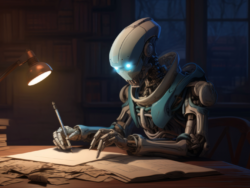
Postmodern philosophers once hailed “the death of the author,” which was part of their strategy to decenter meaning in texts and free culture from the tyranny of metanarratives. Meaning cannot be found in a text without discerning the author’s intentions. All such controls and stipulations should be rejected as authoritarian. Objective meaning must give way […]
Read More
Happy Halloween! The National Association of Scholars—which you should join—held its annual board meeting this past weekend in Denver. It was a delight to finally have that long-anticipated conversation about artificial intelligence (AI) with my colleagues—in person. AI is everywhere these days. It makes headlines in higher education as students turn to it for everything […]
Read More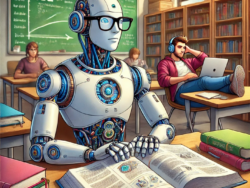
I have always been contemptuous of professors who complain that their students aren’t doing the readings. It is easy to ensure that your students do the reading. Just cold-call them and ask basic questions about the content. My students read the first book of Plato’s Republic last week. Here are some of the questions I asked: […]
Read More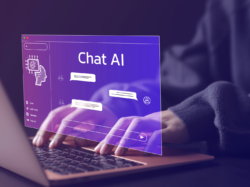
The Chronicle of Higher Education (CHE) recently published a brief, useful, and competent artificial intelligence (AI) guide for university administrators, “Adapting to AI: How to understand, prepare for, and innovate in a changing landscape.” The author is Taylor Swaak, a reporter for CHE. Swaak has done her homework for this Guide, living up to her […]
Read More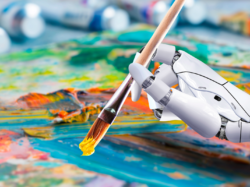
Minding the Campus contributor Joe Nalven will deliver a featured presentation on the creative use of generative artificial intelligence (AI) in art at the San Diego Public Library on August 5. His talk will explore themes of human authorship, hybridism, copyright, and the evolving role of technology in visual art. Nalven has authored numerous articles […]
Read More
Author’s Note: The cover image for this article was created using Text-to-Image artificial intelligence. The prompt was: “Capture the essence of an ethnically diverse student study group, males and females, wide-eyed and immersed in their bedroom, surrounded by books and study materials. The room should exude a sense of curiosity and innocence. A chatbot genie […]
Read More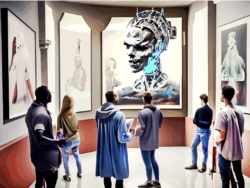
This marks the second of a two-part series by digital artist Joe Nalven who explores the integration of AI in campus art galleries as an approach to supersede academic silos. Part one of this series can be found here. Gallery One ─ Identical Objects, Words, Different Perceptions Students will discuss how words that describe an […]
Read More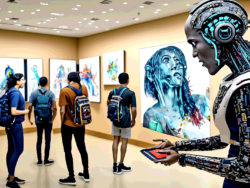
This marks the beginning of a two-part series by digital artist Joe Nalven who explores the integration of AI in campus art galleries as an approach to supersede academic silos. Just a few years ago, maybe just one year ago, this article would have been considered unrealistic or fantasy—certainly not worthy of administrative attention nor […]
Read More